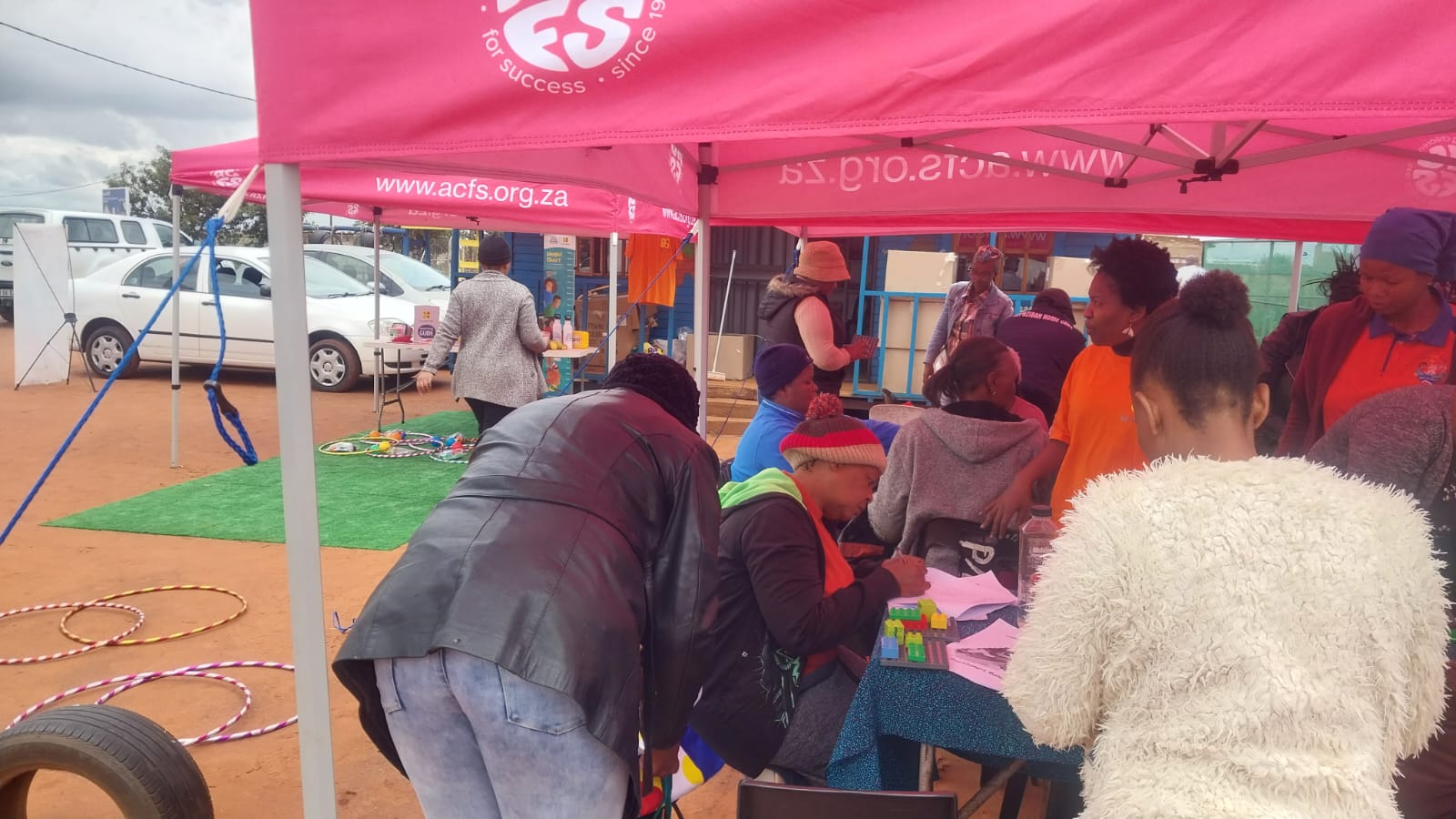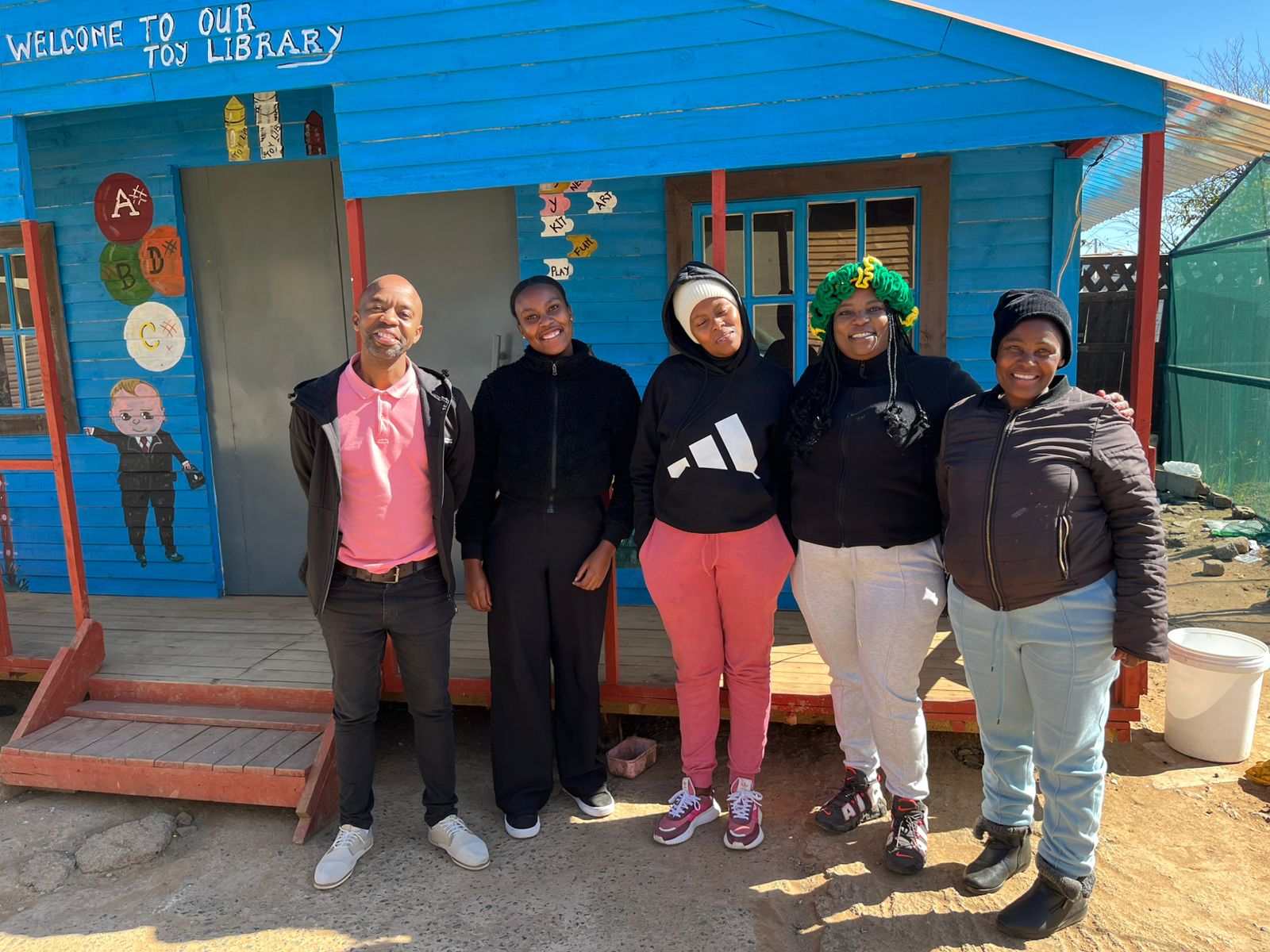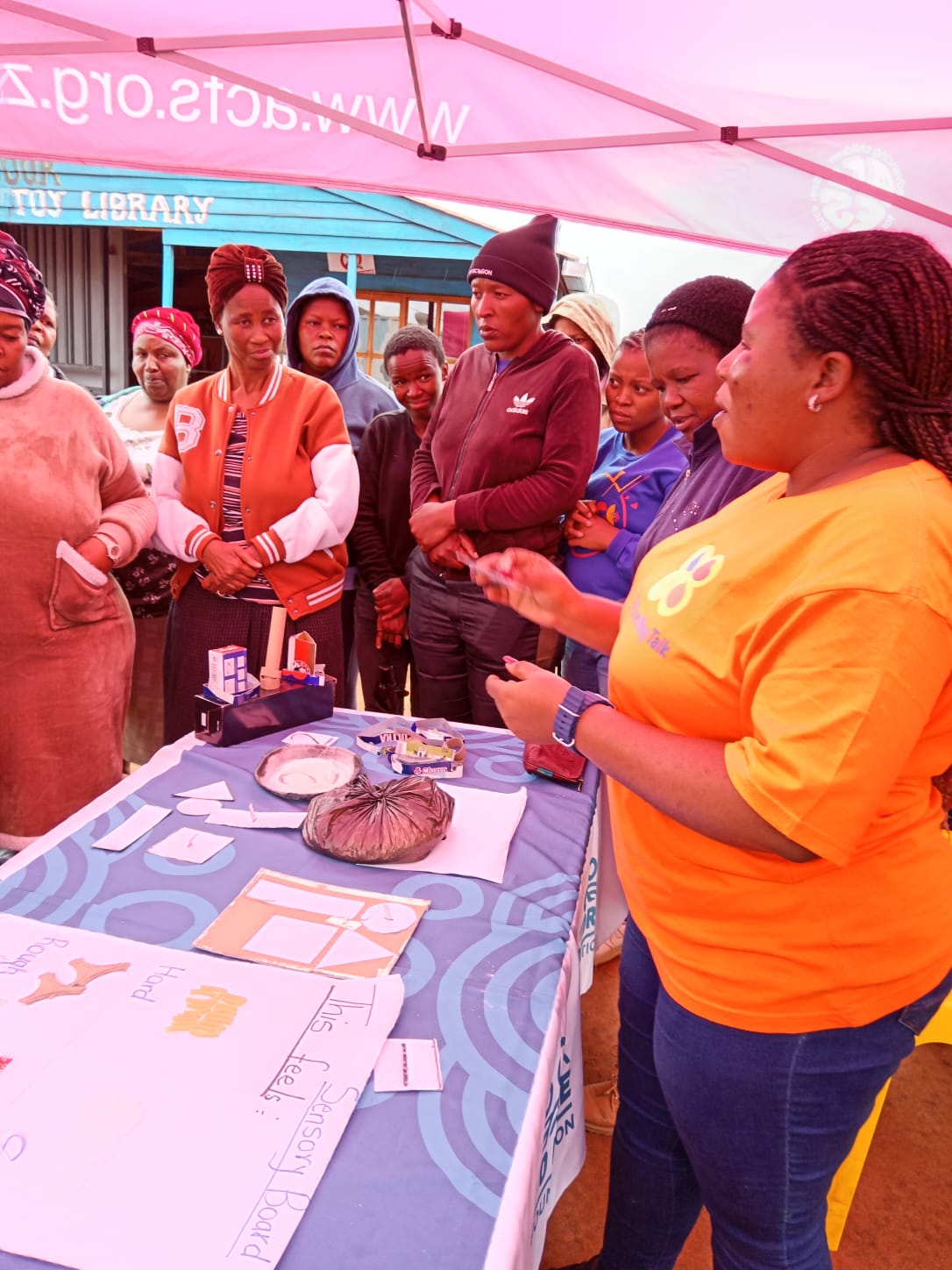Reimagining Early Learning Access: How ACFS “Resource Hubs” Are turning Community Grit into Gold
12 Aug 2025
Co-authored by the DO MORE FOUNDATION and ACFS
In many parts of South Africa, the earliest years of a child’s life unfold in spaces full of love but short on support. For families living in under-resourced communities, access to quality early learning isn’t just limited. It’s often entirely out of reach. Centres are too far. Fees are too high. Resources are too few. And caregivers? Often left doing their best with very little.
But in Randfontein, something different is happening - something rooted in community and growing quietly, powerfully, from the inside out.
The ACFS Resource Hub Model, supported by the DO MORE FOUNDATION and made possible through the generous support of Siqalo, is one such response. It’s not a silver bullet, and it doesn’t promise quick fixes. But what it does offer is something rare: a locally grown, practical model that gives ECD practitioners real tools to do what they’ve always wanted to do - nurture young minds, with confidence, creativity and care.
What exactly Is a “Resource Hub”?
The ACFS Resource Hub is a community-based learning and support space for ECD Centre staff, housed within an existing and trusted ECD Centre in the area. But instead of serving just one centre, the hub acts as a shared resource for dozens of others nearby.
Here’s what makes it special:
- It offers structured short courses and workshops focused on play-based learning, cognitive development, and early literacy.
- It gives practitioners hands-on training, helping them turn recycled and low-cost materials into stimulating learning tools.
- It hosts a fully stocked toy library and learning resource bank, which practitioners can draw from to enrich their classrooms.
- It fosters peer learning and support, giving isolated practitioners a space to build skills and community.
- And through community events, it promotes parental involvement and helps reframe play as a powerful part of early learning.
At the heart of it all are the ECD practitioners - often overlooked in funding conversations but absolutely vital to early childhood development in South Africa. The hub equips them with the skills, confidence, and networks to transform their own centres and classrooms, creating ripple effects across the entire community.

Starting With Trust
Rather than parachuting into a community with a new build and a fixed agenda, ACFS begins by identifying an existing ECD centre with strong roots, typically led by a long-standing principal who is known and respected in the area.
“We start with people the community already believes in,” says Bertha Magoge, Executive Director of ACFS. “We’re not there to replace anyone or bring a shiny new thing. We’re building onto what already exists.”
Community members, local government representatives, and social workers are invited into the planning process early on. They help shape the vision, raise concerns, and co-design the model so it reflects local realities. By the time the hub opens its doors, there is trust, buy-in, and a shared sense of ownership.
Learning through doing (and creating)
Inside the hub, learning is hands-on and practical. After foundational training, practitioners are introduced to creative toy-making, where they learn how to turn everyday items (Coke bottles, cereal boxes, bottle tops) into stimulating educational materials.
“It’s about shifting how we see value,” says Bertha. “What used to be waste becomes a learning tool. And when people create something themselves, they’re far more likely to use it, adapt it, and teach others.”
Soon, centres across the community start collecting recyclables with purpose. Handmade learning corners pop up. And children engage with materials that are not only fun and tactile, but thoughtfully designed to boost their cognitive and sensory development.

A Hub of support and connection
One of the most powerful elements of the hub is how it reduces isolation for ECD practitioners. Many operate in silos, with little to no external support. At the hub, they find a community of peers, guided by facilitators who offer coaching, encouragement, and a space to reflect.
Each year, the hub also hosts a “Come and Play” event, where families are invited to experience what playful learning looks like in action.
“Parents come and something shifts,” says Bertha. “They start playing, laughing, remembering their own childhoods. That emotional connection helps them see why play is so important. It builds generational trust.”
But Let’s Be Honest - It’s Not Easy
For all the joy and creativity the hub sparks, Bertha is the first to admit that this work is not without its challenges.
“Sometimes, it takes longer than expected for practitioners to really believe in themselves. Many come in feeling inadequate, especially those without formal qualifications. They’re not sure if they belong in a training space,” she says.
Building confidence takes time. Facilitators must be patient, intuitive, and skilled in supporting adults with varying literacy levels, learning speeds, and life experiences.
There’s also the issue of consistency. Not all practitioners attend every session, often due to personal or financial pressures.
“Many of them are unpaid or earn very little,” Bertha explains. “They’re juggling their own centres, families and sometimes other jobs. Making time to come to the hub regularly is a real ask.”
And then there’s the broader ecosystem challenge - the lack of formal recognition. Many ECD practitioners gain valuable skills through the hub, but without accredited certification, they may still be overlooked for advancement or funding opportunities. This underscores the need for stronger links between community-based initiatives like this and government-recognised professional pathways.
Lastly, funding sustainability is always in the background.
“It’s more expensive than people think,” says Bertha. “This isn’t a once-off workshop. It’s ongoing support, mentorship, physical resources, and staffing. But when you see the long-term impact (on children, on practitioners, on the community) it’s more than worth it.”

Key learnings we’re carrying forward
- Start with existing strengths. Building on local centres and trusted leaders lays a foundation for long-term impact.
- Co-create with community. Solutions are stronger when they’re shaped by the people who will use them.
- Blend structure with creativity. Training that’s practical and hands-on leads to better retention and confidence.
- Support the whole person. A good hub supports not just knowledge-building, but emotional growth and peer connection.
- Expect the bumps. Transformation takes time, and flexibility is key.
A call for partnership
This model isn’t perfect - but it’s real, and it’s working. It’s addressing the very real access and skills gaps in the ECD sector, not by waiting for large-scale reform, but by growing something meaningful from the ground up.
To fellow nonprofits, government departments, and funders: if we want better outcomes for young children, we must invest in the people who support them every day. Not just the infrastructure. Not just the curriculum. But the human beings behind it all.
The ACFS Resource Hub is one such investment. It’s a community-based, relationship-driven, skill-building model that can be adapted and replicated wherever there is trust, will and the right kind of support.
As Bertha says, “This work is not about perfection. It’s about presence. Showing up for the people doing the hard work. Equipping them. Believing in them. And building something better, together.”
Let’s keep showing up - for them, and for the children they serve. Let’s build more resource hubs for more communities to thrive.
This article was co authored by the DO MORE FOUNDATION and the ACFS Community Education & Feeding Scheme as a learning insight from the Randfontein Deep Dive Project. This work is made possible through — RCL FOODS, the East Rand Local Municipality, DBE social workers, the dedicated stakeholders on our technical committee, the ECD centres who generously volunteered their time and expertise, and most importantly, the local community whose support and involvement are the foundation of our success.